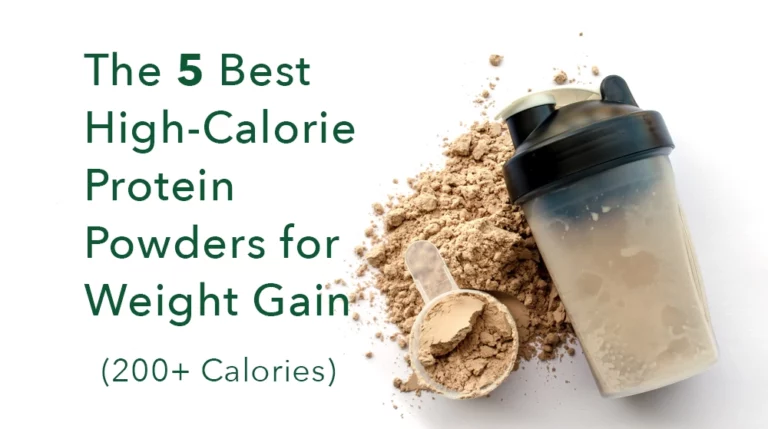How Many Calories Do You Need to Gain Weight (Calorie Surplus)?
Whether to perform better at a sport, stop unintentional weight loss, or reach a healthy body weight, there are several reasons why gaining weight could be beneficial.
Gaining weight requires you to consistently consume more calories than your body needs, but you may wonder how many calories is enough to promote healthy weight gain.
This article explains how many calories you should eat to gain weight healthily and provides tips on how to increase your calories.

Energy balance
Think of your weight as a teeter-totter.
On one side you have energy or calorie intake, which consists of the calories from food and beverages you consume.
Calorie expenditure or output is the other side of the teeter-totter.
It consists of the calories you need to support normal bodily functions like breathing and digestion and the calories you burn during exercise and non-exercise-related activities like yard work (1).
If the calorie intake side matches the calorie output side, the teeter-totter is in balance your weight stays the same.
But if one side is off balance, you will gain or lose weight.
If you consume fewer calories (calorie input) than you what you need (calorie output), you are in a calorie deficit and you will lose weight (1).
Conversely, if you consume more calories than you need, you are in a calorie surplus and you will gain weight.
To this point, if you’re goal is to gain weight, you must increase your energy intake side by consuming more calories than you expend.

How many calories are needed to gain weight?
Now that you know you must consume more calories than you need, the question becomes how much.
Eating too many calories can result in rapid weight gain, which can be unhealthy.
But eating too few calories can leave you frustrated with a lack of weight gain.
So the sweet spot lies somewhere in the middle.
To gain weight, you should consume 200 to 500 calories above your maintenance calories (2, 3).
Doing so should lead to a weight gain of 0.25–0.5% of your bodyweight each week.
This equates to 0.4–0.8 pounds (0.2–0.4 kg) per week for a 150-pound (68-kg) person.
Your maintenance calories are the amount you need to maintain your weight. It’s the amount you need to match the energy expenditure side, so the teeter-totter is balanced.
You can use calorie calculators like the Body Weight Planner from the National Institute of Health to estimate your maintenance calories (4).
Alternatively, you can get a better idea of your maintenance calories by tracking your calorie intake and weight for at least 10 days.
Your weight may fluctuate day to day, but if your weight has otherwise remained stable after 10 days, the average number of calories you consumed is likely your maintenance calories.
From there, add 200–500 calories to your maintenance calories to determine your new calorie goal.
If you don’t regularly lift weights, doing so can help you gain more weight in the form of muscle rather than fat.
If you’re leaner and less advanced with weight training, your needs can be on the higher end of the 200–500 calorie surplus, whereas if you’re more advanced with training, your surplus should be on the lower end.
As you gain weight, your maintenance calories will increase, so you should recalculate your calorie goals every 4–6 weeks until you reach your desired weight.
Tips to increase calories and gain weight
Increasing your calories is the name of the game for gaining weight.
Sometimes, though, this can be easier said than done.
Factors related to busy lifestyles, poor appetite, a fast metabolism, or certain medical conditions can make it difficult to consistently consume enough calories to gain weight.
Here are some tips to make it easier to increase your calories and gain weight:
Snack often
It can be difficult to get the calories you need to gain weight in three square meals.
Separating your high-calorie meals with high-calorie snacks, however, can make this process much easier by allowing you to spread out your calories.
Some of the best high-calorie snacks for weight gain include:
- peanut butter and honey sandwich
- whole-fat Greek yogurt and granola
- high-calorie bars
- high-protein trail mix
- avocado-egg toast
Stock your desk drawers, backpacks, and car compartments with shelf-stable high-calorie snacks like nuts, protein bars, and trail mix so you never miss a snacking opportunity.
Drink your calories
Calories in liquid form have less of an impact on satiety than calories from solid forms.
This means that you can usually consume more calories in liquid form than in solid form before getting full.
You can buy premixed high-calorie drinks like Ensure or you can make your own using high-calorie ingredients like protein powder, oats, peanut butter, and whole milk.
If you want to make your own, try making one of these healthy weight gain protein shakes and smoothies.
Emphasize fats
Fats provide more than double the calories per gram as carbs or proteins.
As such, increasing your intake of healthy sources of fats is a highly effective way to boost your calories and promote weight gain.
Healthy sources of fat include:
- avocados
- nuts and seeds
- olive or canola oil
- nut butter like peanut butter
- whole eggs
- oily fish like salmon, mackerel, and herring
- full-fat Greek yogurt, cottage cheese, and milk
Limit or avoid unhealthy sources of fat such as processed meats, bakery items, and fried foods.
The bottom line
Gaining weight requires that you consistently consume more calories than you need.
To gain weight healthily, you should consume 200–500 calories above your maintenance calories — the number of calories you need to maintain your weight.
You can increase your calories by snacking often, drinking high-calorie shakes and smoothies, and by emphasizing healthy fats.






